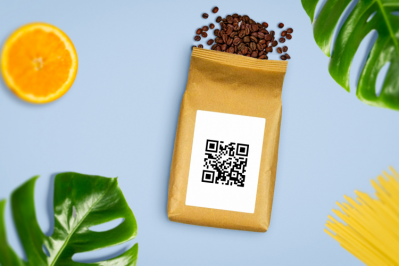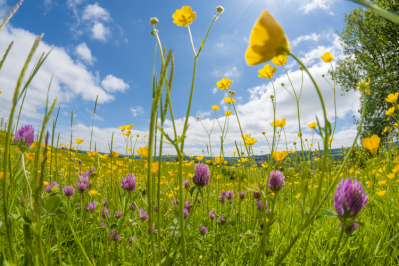Traceability a ‘key enabler of trust, transparency and sustainability’

Transparency is ever more important to consumers. According to FMI research, in partnership with Label Insight, in 2019 75% of consumers said they would switch to a brand that provides more in-depth product information - beyond what’s provided on the label. That’s up from 39% of consumers in 2016 who said the same.
“End-to-end traceability is now the key enabler of trust, transparency and sustainability,” noted Mike Jamieson, President of CPG at Schneider Electric.
For brands to be transparent, they need to know where the raw materials they use are coming from and achieving this requires effective use of data. Digitalisation is an important catalyst, with technologies like blockchain – an immutable digital leger – gaining traction.
“Data powers the vast majority of our day-to-day lives - the same must become the case for the food industry. Each and every event in the product journey must be recorded and validated to create an immutable digital passport that be viewed across the permissioned ecosystem. Ingredients, origin, manufacturing, production, packing, distribution and destination, need to be instantly accessible and able to be analysed in real-time,” Jamieson stressed.

Traceability for food safety and operational efficiency
Jamieson believes that traceability is crucial to managing food safety risks. Schneider works with brands like Nestlé’s Perrier spring water on traceability, providing support for the continuous improvement of the brand's end-to-end clean-in-place processes and operations. The company provides an ‘all-in-one’ solution incorporating diagnostics, maintenance, traceability and quality monitoring.
This kind of integrated approach can be critical to risk management and improve operational efficiency, Jamieson explained.
“By incorporating operational diagnostics, traceability and quality monitoring, the business can provide real time access to enable quick, decisive action.
“In case of error, say with product contamination or packaging failure – insights can be instantly uncovered and isolated, ensuring waste across the supply chain is minimised. End-to-end visibility enables consumers, businesses and governments to trace and understand the entire history of a product. This helps drive responsible production, overall efficiency and circularly, adding as the foundation for continuous, end-to-end improvement.”
Traceability as a tool for sustainable sourcing
Traceability is also an important unlock for the food sector as it works to lessen the negative impact of production on the environment.
“Evidence of responsible handling is just one part of the advantages of traceability. By having visibility of all the actors involved in handling materials associated with the product, bodies can collate and validate sustainability credentials and allow businesses to assess and report on supplier’s human and environmental sustainability record, again effectively raising standards and helping to meeting UN Sustainable Development Goals,” Jamieson observed.
For ingredient supplier Cargill, sustainability is a critical aspect of its work on traceability and transparency. A spokesperson for the commodities giant told FoodNavigator that food industry customers are increasingly demanding clear visibility across the supply chain in order to meet their own environmental goals.

“More than ever, our customers are requesting greater transparency into the supply chains behind the products they buy,” the representative said. “Our customers – and their consumers – want assurance that raw materials are sourced in a sustainable, environmentally friendly way, with high regard for social standards and ethical economic practices.”
Cargill reports ‘greatest interest’ in the transparency of cocoa, soy and palm oil supply chains - commodities that have been associated with environmental problems like deforestation.
Again, developments in digitalisation are proving fertile ground for innovation. The group has developed its suite of ‘Wise’ digital portals for cocoa, palm and soy crops – CocoaWise, PalmWise and SoyaWise. These portals enable Cargill customers to 'easily' access details about where and how crops are being grown and processed.
“Each portal is tailored to the crop it serves. For example, our CocoaWise platform enables customers to be more deeply connected to the communities from which they purchase their cocoa. It provides visibility into the impact of financial investments in key initiatives that meet the needs of the cocoa farming communities on the ground, such as providing sustainable agriculture coaching for farmers, entrepreneurship training for women and nutritional programs for families,” the spokesperson explained.
Transparency for sustainable storytelling
Rising consumer interest in social and environmental issues provide socially and environmentally responsible brands with an important opportunity to leverage the traceability in their supply chain for transparent and authentic storytelling.
One such brand is Beyond Good, a single origin chocolate that is built on a foundation of sustainable and ethically sourced cocoa.
In order to tell its brand story, this November Beyond Good is overhauling the packaging of their Madagascar and Uganda chocolate bars to ‘celebrate each distinct country of origin’. The company plans to shift the focus from heirloom to single origin to better highlight each country’s unique flavours due to the genetic varieties of cocoa and local environmental conditions.
Developments in the digital space have allowed the company to tell a more detailed story about the journey of its cocoa from farm to bar. As part of the brand’s commitment to transparency and traceability, the new packaging will include a QR code on the inside of the wrapper, allowing consumers to scan and see into the company’s supply chain, we were told.
“We’re in the final stages of building an interactive, public facing website that connects consumers directly with the farmers in our supply chain. Down to the parcel of land and the number of trees on the parcel of land,” Beyond Good’s CEO, Tim McCollum explained.
For instance, consumers will be able to ‘meet’ all 93 of the farmers Beyond Good works directly within Madagascar, see where the cocoa beans are grown and where the chocolate is made.
However, McCollum stressed, the company isn’t taking this approach because of ‘growing interest from the media or consumers. “It’s great that there is more interest than ever about social and environmental issues. They’ve always been the heartbeat of our business and brand. We care about them because of who we are and what we do. Not necessarily because they’re en vogue.”
Because these issues are the ‘heartbeat’ of Beyond Good, McCollum explained that social and environmental responsibility – and the traceability that requires – have been built into the business model. This means that the chocolate maker doesn’t need to rely on high tech solutions to trace its supply chain.
“I read a lot about tech development and traceability, and I think it’s bit of a distraction. Advanced technology may be required to gain traceability into your supply chain if you’re sitting in the US, and five layers of middlemen were required to transport a cocoa from a rural farmer in Africa to your factory floor. We have a factory in Africa. And zero middlemen between us and the farmer. Whereas traceability is impossible for most chocolate companies, it’s unavoidable for us. But it has little to do with technology. And more to do with our business model.”


























